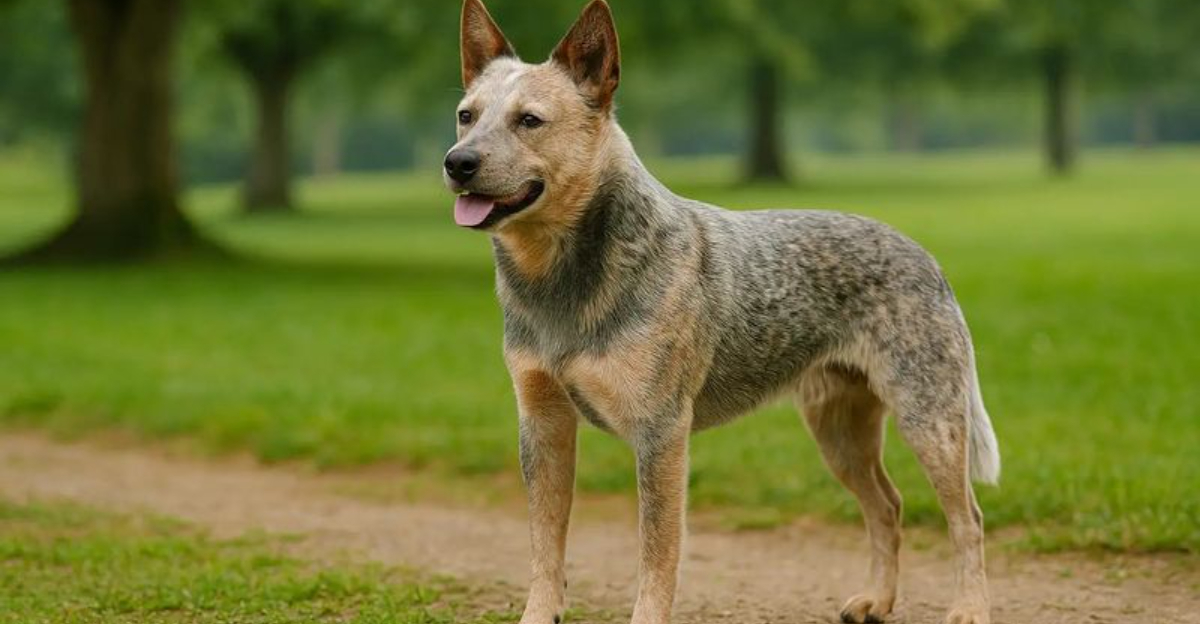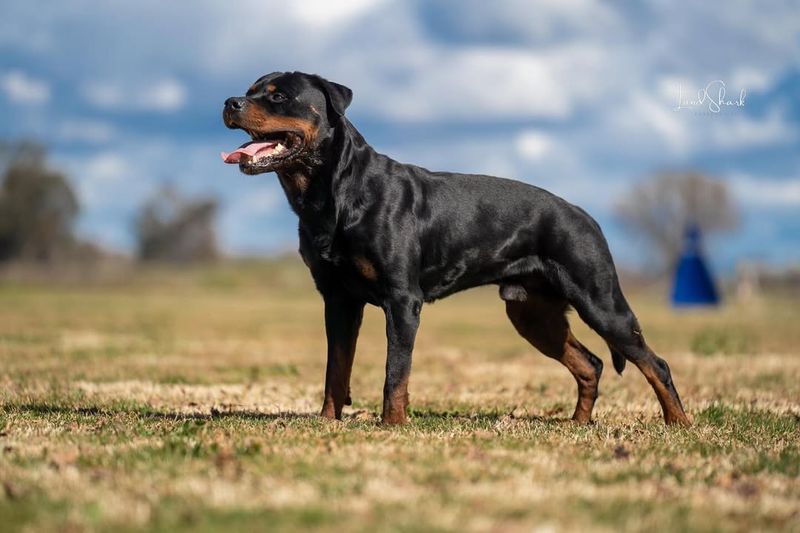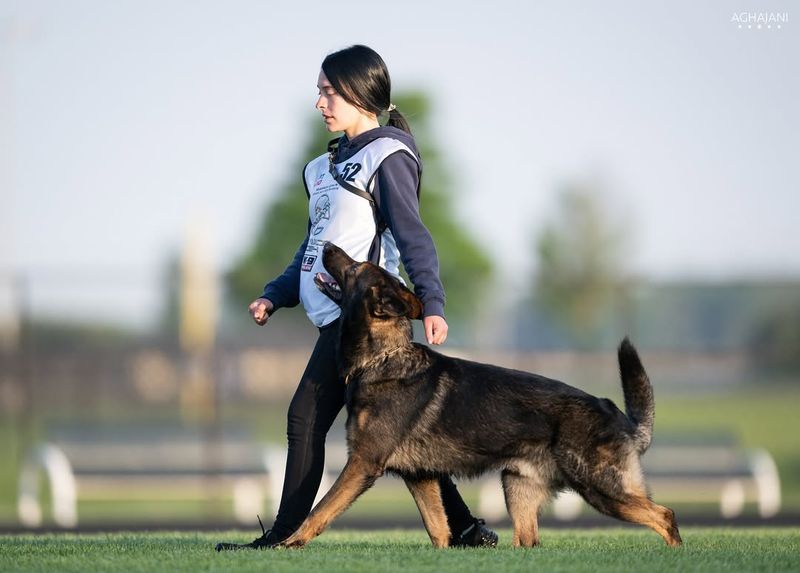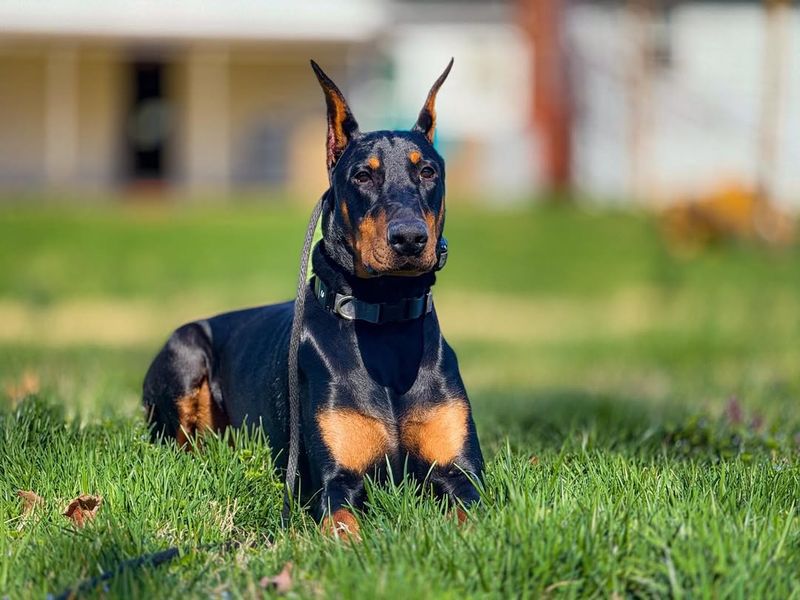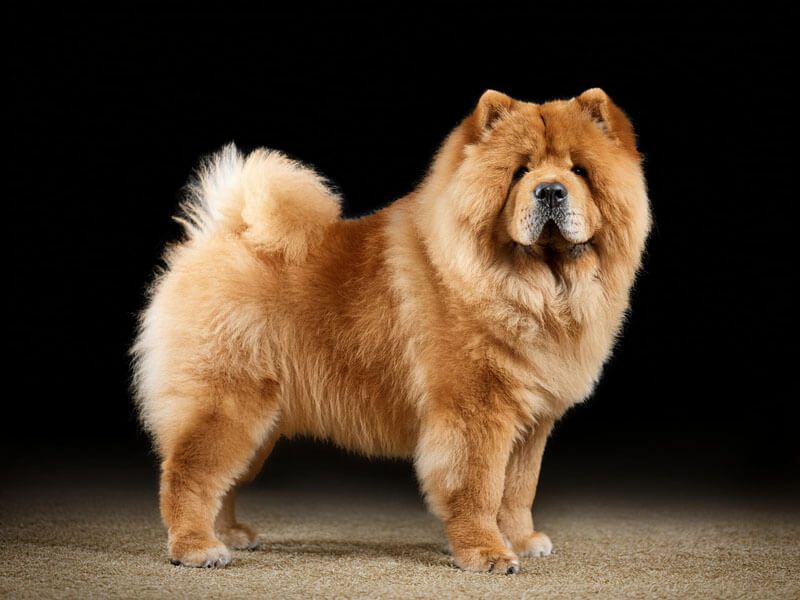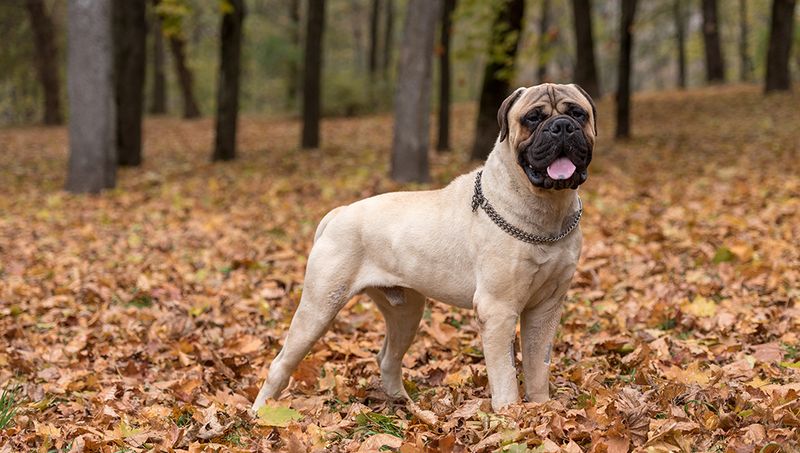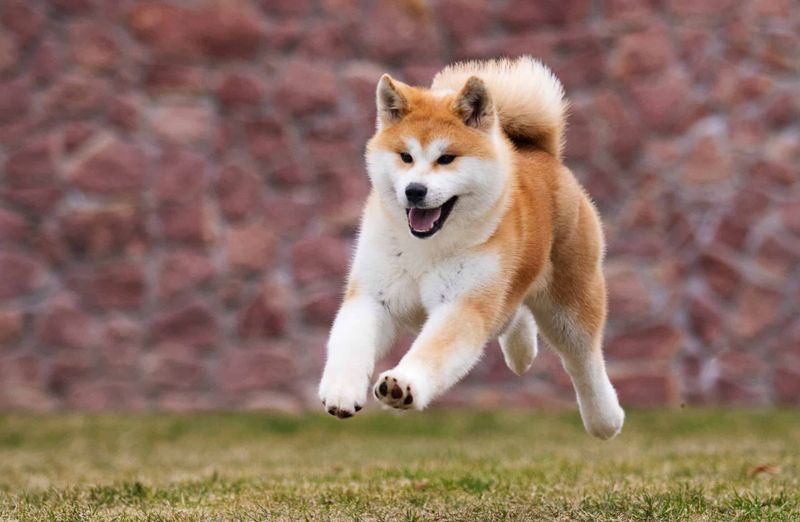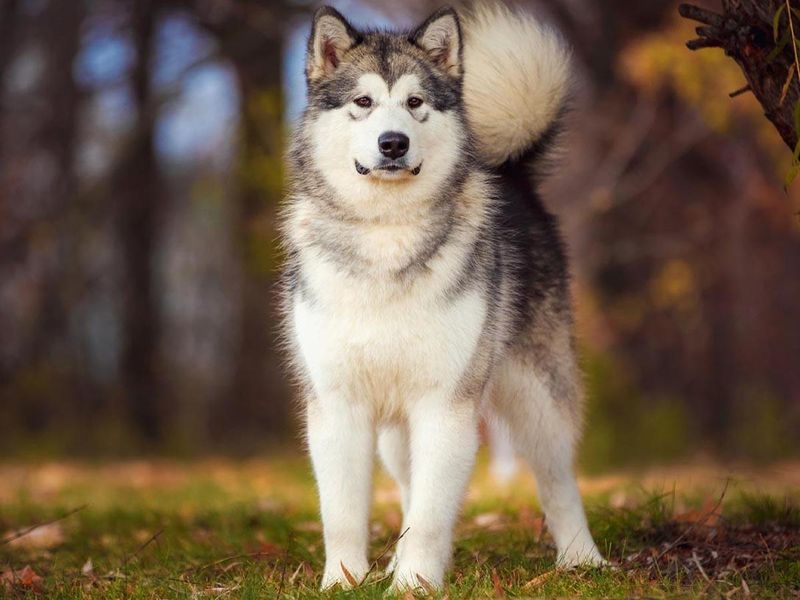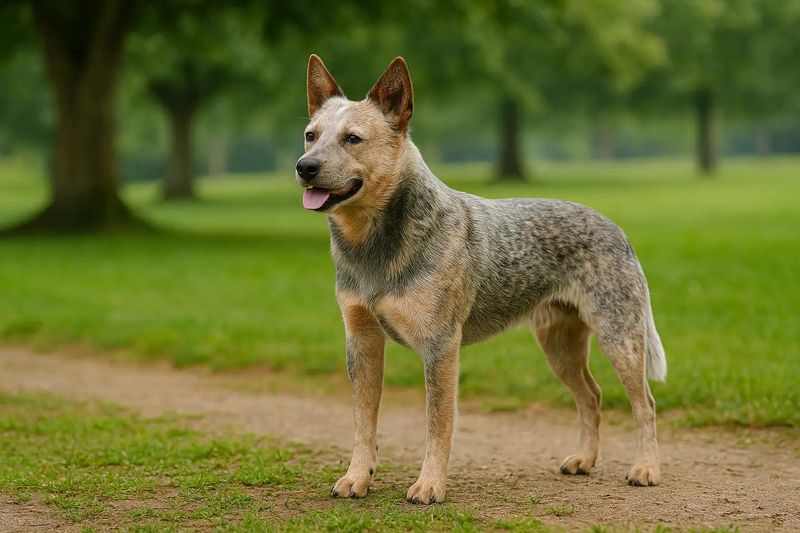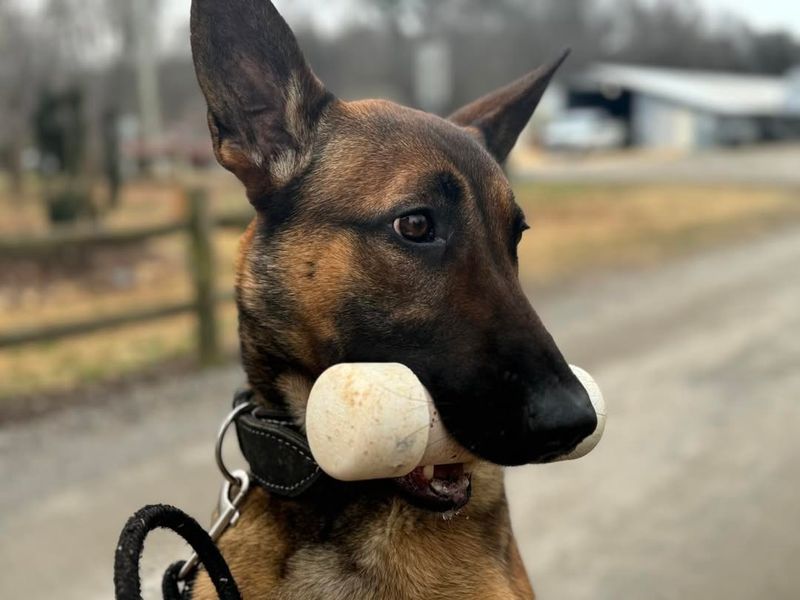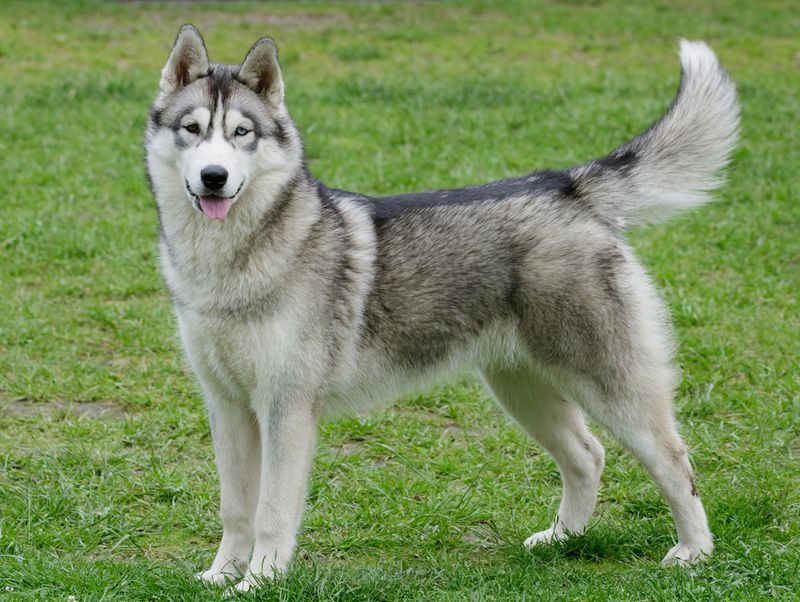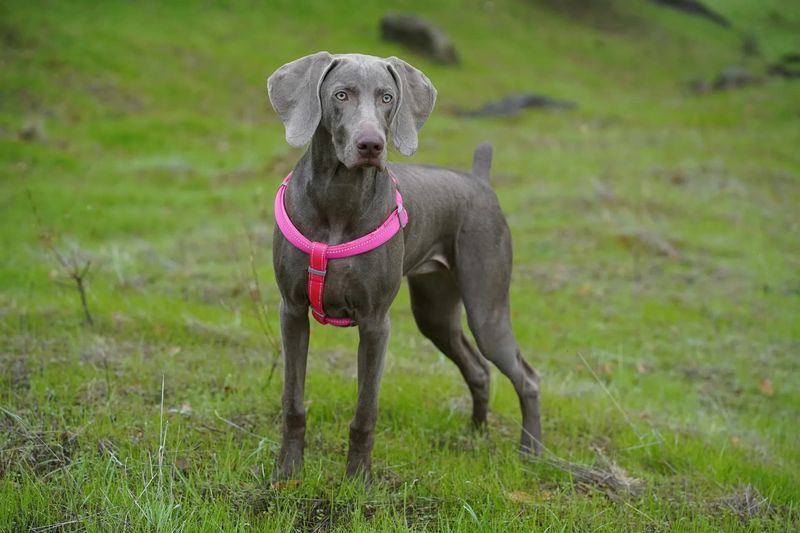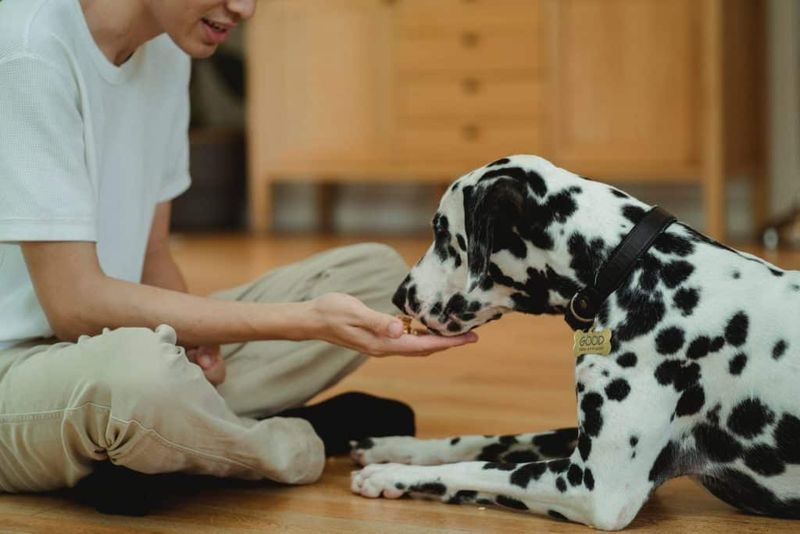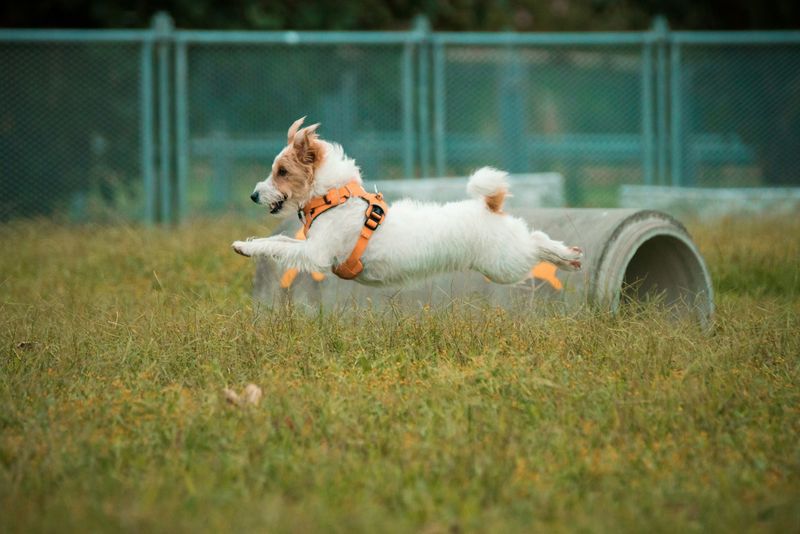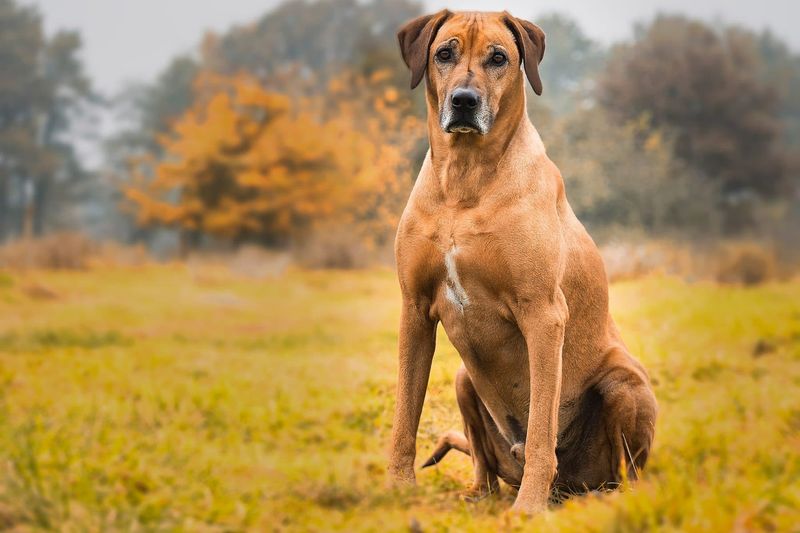Training certain dog breeds requires a firm hand to prevent behavior issues. These breeds often have strong personalities and need consistent guidance to channel their energy positively. Proper training not only ensures a harmonious living environment but also strengthens the bond between owner and pet. Here’s a look at 14 dog breeds where training is crucial.
Rottweiler
The Rottweiler, with its robust build and confident demeanor, is a breed that commands respect. Known for its protective instincts, it’s essential for owners to establish leadership early on. Training should focus on socialization and obedience to prevent territorial behavior.
Rottweilers excel in tasks that require focus and discipline, often participating in working roles. Their intelligent nature benefits from mental stimulation through training exercises. Ignoring these needs may lead to dominance issues.
With the right guidance, Rottweilers become loyal companions, reflecting the dedication put into their upbringing. Their strong-willed nature requires consistent rules to follow.
German Shepherd
With a reputation for intelligence, the German Shepherd thrives on structure and purpose. This breed’s versatility in roles, from service dogs to family pets, speaks volumes of its adaptability. Early training should emphasize obedience and agility to harness their energetic nature.
German Shepherds have a protective side, often becoming guardians of their families. Without proper training, they may develop overprotective tendencies. Structured routines keep them engaged, steering clear of boredom-induced behavior.
Their eagerness to please makes them ideal candidates for reward-based training. A German Shepherd’s loyalty mirrors the effort invested in their development.
Doberman Pinscher
Sleek and powerful, the Doberman Pinscher is a breed known for its loyalty and intelligence. Effective training is key to balancing their protective instincts with social behavior. Early socialization helps in curbing any aggressive tendencies.
Dobermans are energetic and thrive on physical and mental challenges. Their quick learning ability benefits from a variety of training exercises. Consistency and positive reinforcement are crucial to avoid any stubborn behavior.
A well-trained Doberman becomes an affectionate family member, diligently guarding its loved ones. Their elegance and grace reflect their disciplined upbringing.
Chow Chow
With its regal appearance, the Chow Chow often exudes an air of independence. This breed requires firm, yet gentle training to overcome its aloof tendencies. Socialization from a young age is essential to prevent territorial behavior.
Chow Chows are known for their loyalty to their families but can be wary of strangers. Patience in training helps in building trust and reducing suspicion. Consistent boundaries ensure they know their place within the household.
Their dignified and sometimes stubborn nature makes training a challenge, but the rewards of a well-behaved Chow are worth the effort.
Bullmastiff
The Bullmastiff, often seen as a gentle giant, requires a steady hand in training. Known for its protective instincts, early socialization and obedience training are crucial. This helps in managing their natural guarding behavior.
Bullmastiffs benefit from short, engaging training sessions that prevent boredom. They respond well to positive reinforcement, thriving in environments where they feel included in family activities.
Patience and consistency help in developing a Bullmastiff’s balanced temperament. Their calm demeanor, coupled with proper training, makes them reliable companions.
Akita
The Akita, with its strong-willed and independent nature, is known for its loyalty. Training an Akita requires understanding and respect for its personality. Early socialization mitigates their natural aloofness with strangers.
Akitas are intelligent but can be stubborn, making consistent training essential. Positive reinforcement and varied training sessions keep them engaged and responsive.
With proper guidance, Akitas flourish into devoted family members, showcasing their protective qualities. Their unique blend of independence and loyalty requires a thoughtful approach to training.
Alaskan Malamute
Renowned for its strength and endurance, the Alaskan Malamute is a breed built for adventure. Training should start early, focusing on obedience and social skills. Their pack mentality means they need a strong leader.
Malamutes are affectionate but can develop stubborn traits if not properly trained. Consistent boundaries and engaging activities prevent any unwanted behavior.
These dogs thrive in environments where they can explore and exercise. A well-trained Malamute is both a loyal companion and a source of joy, reflecting the effort put into their upbringing.
Australian Cattle Dog
With boundless energy and intelligence, the Australian Cattle Dog excels in tasks that require focus and agility. Early training is crucial to manage their herding instincts and energetic nature.
These dogs benefit from jobs that engage both their mind and body, preventing restlessness. Consistent training routines help in channeling their energy positively.
The Australian Cattle Dog’s loyalty and drive make them ideal companions for active families. Their spirited personality requires owners ready to match their enthusiasm.
Belgian Malinois
Known for their versatility, the Belgian Malinois is a working breed with a keen intellect. Training should emphasize obedience and mental stimulation to harness their energy.
These dogs excel in roles requiring precision and discipline, such as search and rescue. Early socialization prevents any territorial behavior, promoting balanced interactions.
The Malinois’ eagerness to work requires an environment rich in challenges and activities. Their dedication and loyalty stem from the structure provided through training.
Siberian Husky
Siberian Huskies, with their striking appearance and energetic nature, require dedicated training to manage their independence. Early socialization helps in curbing their escape artist tendencies.
Huskies thrive on physical activities and mental challenges, preventing boredom-induced mischief. Positive reinforcement and variety in training keep them engaged and well-behaved.
Known for their friendly disposition, Huskies are wonderful companions when properly trained. Their zest for life is contagious, bringing joy to those who embrace their spirited nature.
Weimaraner
Weimaraners, often referred to as “grey ghosts,” are known for their sleek appearance and energetic demeanor. Training should focus on obedience and engagement to manage their active nature.
These dogs form strong bonds with their families, requiring consistent interaction. Mental stimulation through training exercises helps in preventing any anxiety-related behavior.
With a playful spirit, Weimaraners thrive in environments that offer exploration opportunities. Their loyalty and affection are a testament to the training and care they receive.
Dalmatian
Dalmatians, with their unique spots and lively nature, require structured training to focus their energy. Early socialization is key to preventing any hyperactive behavior.
These dogs excel in activities that combine physical and mental stimulation. Consistent routines help in maintaining their attention and preventing restlessness.
Known for their playful temperament, Dalmatians bring joy to active households. Their spirited personality is complemented by the discipline provided through training, making them delightful companions.
Jack Russell Terrier
The Jack Russell Terrier, small yet mighty, is a breed packed with energy and intelligence. Training should harness their natural curiosity and agility, focusing on structured activities.
These terriers have a tenacious spirit, thriving in environments with varied challenges. Early training prevents any stubborn behavior, channeling their energy into positive outlets.
Their playful and adventurous nature makes them ideal companions for those ready to match their zest for life. With proper guidance, Jack Russells display loyalty and affection.
Rhodesian Ridgeback
The Rhodesian Ridgeback, with its distinctive ridge and noble stance, is a breed of both strength and loyalty. Early training is essential to manage their independent spirit.
These dogs require a firm yet understanding approach, focusing on socialization and obedience. Their natural protective instincts are channeled positively through consistent training.
A well-trained Ridgeback is a loyal and loving family member, reflecting the dedication of its owner. Their grace and strength are a testament to their disciplined upbringing.
